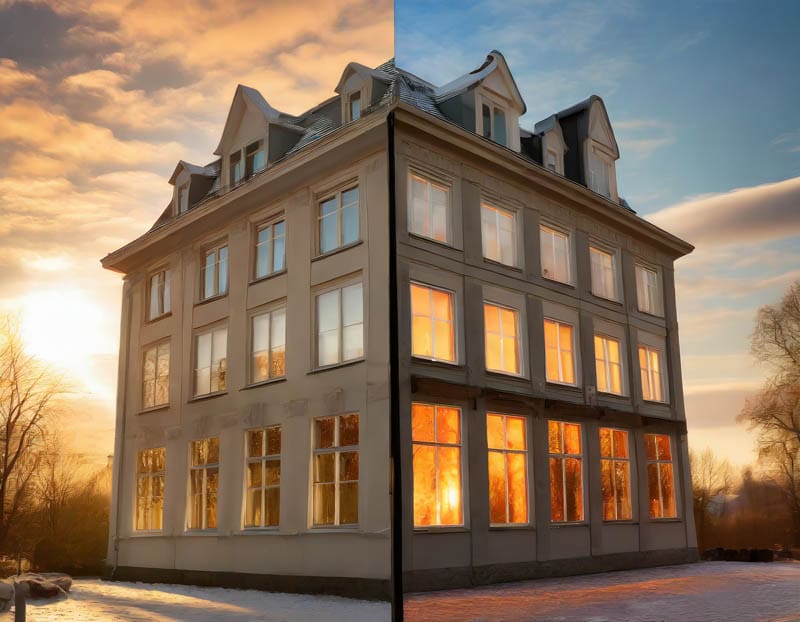
How Long Does Vacuum Glazing Last? Accelerated Aging and Long-Term Efficacy
When considering the longevity and durability of vacuum glazing, one standout product in the market is LandVac Vacuum Insulated Glass […]
When considering the longevity and durability of vacuum glazing, one standout product in the market is LandVac Vacuum Insulated Glass (VIG) units. Comprehensive aging tests have demonstrated the long-term stability and durability of these units. So when considering how long does vacuum glazing last, here’s an analysis of the test results and their implications:
Monitoring Aging Test under Sunlight
- Duration: 2012-2020 (8 years)
- Samples: More than 100 units
- Findings: The pressure inside the vacuum space remains steady over the years.
- Implication: Consistent internal pressure over a long period under natural sunlight suggests that the VIG units maintain their long term vacuum glass integrity and insulating properties.
Aging-Simulation Test under Xenon Lamp
- Radiation Time: 22,500 hours under xenon lamp (equivalent to 25 years in real-world conditions)
- Method: 900 hours of xenon lamp radiation equals one year of actual environmental exposure.
- Findings: The pressure inside the vacuum chamber was recorded for each cycle, showing a stable relationship between pressure and radiation time.
- Implication: The VIG units withstand long-term exposure to simulated sunlight, maintaining vacuum pressure and ensuring longevity of performance.
Alternate Temperature Test
- Temperature Cycle: Alternating one side between 25°C and 75°C, while the other side remains constant.
- Cycles: Over 10,000 cycles
- Findings: The U-value (thermal transmittance) remains steady, indicating no significant performance degradation.
- Implication: The VIG units are resilient to temperature fluctuations. This means they can handle real-world environmental changes without losing insulating efficiency.
Why is this performance different to the general market?
Double and triple glazing units have a lifespan of up to 25-years when glazed effectively, but they can be as low as 10-years if not well constructed or installed. During that lifespan, the Nobel gases inside the cavity escape and the performance of the unit reduces. If you graphed the performance against lifespan, you would see a gradual and linear decline until breakdown.
Low sightline double glazing units have an even lower lifespan, which can be as short at 12-months. When you consider the rate of dissipation of the gases from the cavity, the performance given for a new unit is quickly reduced, and it is unlikely to be much better than an air-filled cavity within a few short years. By contrast, the long term vacuum glazing performance is consistent and reliable.
So, how long does vacuum glazing last?
The comprehensive testing conducted on LandVac VIG units indicates how long does vacuum glazing last and gives a strong durability profile. This supports the claim that the units have a useful life in excess of 25 years. The steady pressure in the vacuum space under various conditions (sunlight, simulated aging, temperature cycles) ensures that the insulating performance remains unaffected over time. This evidence supports the provision of a long-term vacuum glass warranty for LandVac VIG products. It should also give confidence in their reliability and long-term energy efficiency.
These tests collectively validate the robustness and longevity of LandVac VIG units, making them a dependable choice for applications requiring long-term insulation solutions. If you want to read more about this testing, please see our blog on the subject: LandVac’s 15-year Vacuum Glass Warranty – Grounded in Testing